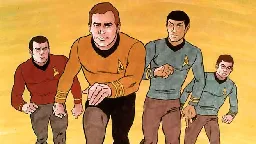Shouldn’t we expect better fact-checking from the BBC? Even a pop-culture writer profiling Star Trek The Animated Series?
Shouldn’t we expect better fact-checking from the BBC? Even a pop-culture writer profiling Star Trek The Animated Series?

The legacy of Star Trek: The Animated Series, 50 years on

I was initially delighted to see BBC amplifying the celebration of TAS’ 50th anniversary. Then I read this piece.
Half a day later I’m still annoyed at the number of easily verifiable errors and that with the BBC’s trusted source credibility, the power that this piece can have to create uncertainty on settled issues.
First there are 22 episodes of TAS not the 20 claimed in the article.
Second, it’s established that Gene Roddenberry’s rejection of TAS as canon was overstated or at least inconsistent (and that Richard Arnold’s own view was a factor in magnifying this question in early TNG production). The BBC article overstates this as fact.
Third, it ignores the fact that Paramount as the rights holder has decided to treat TAS as canon. The article concludes with a statement that this continues as an open question. While it might have been fair to say that for a number of fans, this remains a question, it’s not accurate to portray this as an official position even just implicitly.
Anyone else irritated by this?
